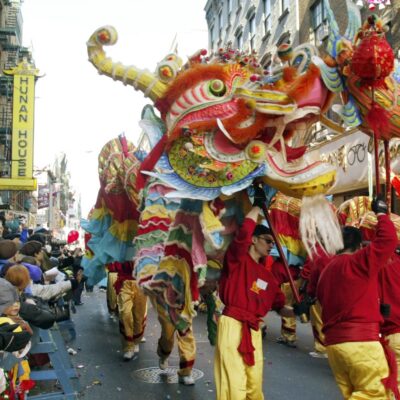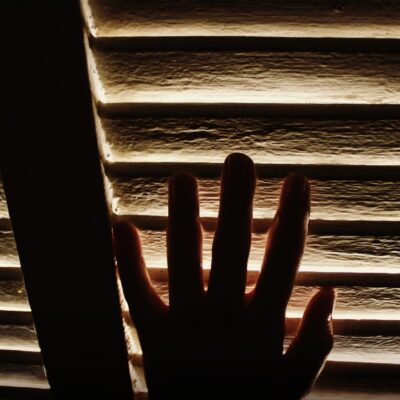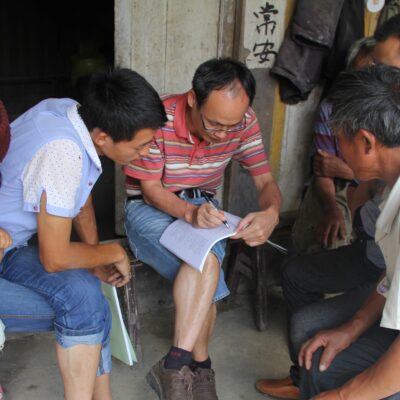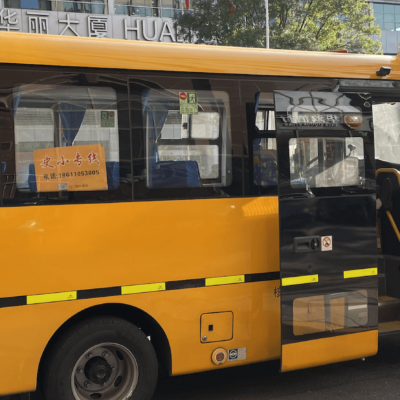Among the more arresting visions of the Chinese Communist Party (CCP), and its conception of its historical mission, is the idea of the Party as an examination candidate. In a 2018 speech, China’s President Xi Jinping likened the Party to such a candidate sitting an examination set for it by history. The Chinese people would be the graders of this paper— reflecting the Party’s oft repeated claim that its ultimate responsibility is to ‘serve the people’.
This metaphor highlights the peculiar centrality of exam-focussed educational culture in Chinese political life. Xi’s image draws on recent discussions of the Party’s history which, in turn, invoke Mao Zedong’s likening of the CCP, in March 1949 when it was on the verge of taking power in Beijing, to someone setting out on the road to take the civil service exams, (gankao zhi lu). These images also contain a deeper irony given that the CCP was born in an environment in which the traditional exam-focussed education system had collapsed, and its legacies were being subjected to radical critique, not least by the Communists themselves.
In 2021, 100 years after the founding of the CCP and more than 60 years after the Party’s ascension to power, exams and their educational and social significance have been and remain a core issue of political contention in China. For much of the period since university entrance examinations were re-established in 1977, after they had been abolished in the late 1960s during the Cultural Revolution (a period of intense upheaval and experimentation in the education system), it seems there was broad consensus on the part of both state and society on the value of exams.
But recent government action to prohibit excessive homework and to curtail the actions of private tutoring institutions, can arguably be read as symptoms of ongoing disquiet about the negative effects of an exam-fixated education system. This disquiet, we suggest, echoes concern about the educational and social effects of examinations that have a very long history in the Chinese world, extending back to the imperial era.
In late July 2021, following the release of a joint CCP Central Committee and State Council document proposing measures to reduce the burdens that the compulsory schooling phase (i.e. primary and junior middle school level education) imposes on students and parents, China’s Ministry of Education issued a series of new rules aimed at reducing homework and curtailing the activities of for-profit after school tutoring services. Such companies are now barred from tutoring in core school subjects and from raising capital. Primary and secondary school teachers are now also prohibited from profiting from after school tuition.
Various commentators have noted the shock waves these moves sent through the then burgeoning after-school tutoring sector which formed an industry valued at over USD 100 billion. Some explain the tightening as an exercise in Party-imposed rectitude linked with the centenary of the establishment of the CCP, but also as being motivated by the need to make the financial costs of parenthood less onerous to encourage a rise in the birth rate which has been dropping in recent years. Others have argued that this move has a strong similarity to recent interventions into other growing private sectors of the economy such as information technology and they suggest that such action is typical of the CCP’s drive to control and command in state-society relations in the Xi era. Still other commentators see these attempts to reduce educational burdens as largely empty gestures which will have little real impact.
What is going on? The official account and other interpretations
While foreign commentators on these reforms have focussed on the closure of private tutoring institutions, the emphasis in both the official policy statements and the publicly-approved comments on the policy in the Chinese media has been on the imposition of limits on the amount of homework that students must do.
These discussions have three foci—school students, whose welfare is said to be the paramount concern; teachers who, it is hoped, will be relieved of some of the pressures upon them; and parents, whose anxieties about their children’s futures are seen to have contributed to the pressures on the school system.
The broader context in which these issues are located is that of tensions about whether the education system should be primarily oriented towards competitive examinations or whether it should focus on cultivation of the moral, cultural, and ideological ‘quality’ of students individually and collectively—a concept conveyed in Chinese by the term suzhi meaning ‘level of cultivation’ or ‘quality of character/quality of conduct’. This idea of improving the quality of the population has been a major element in public rhetoric in the People’s Republic of China (PRC) since the 1990s at least (although arguably it has much deeper historical roots).
The extreme pressures that exam-focussed education for high school and university entrance bring to students in East Asian countries are well known. Lengthy school days, large quantities of homework and a heavy reliance on extracurricular coaching, especially through private teaching institutions, have long characterised primary and secondary education in Japan, South Korea and Taiwan. In this regard, the current situation in the PRC echoes what has been common in the non-socialist industrialising states in East Asia since the 1950s at least. Indeed, the South Korean government of Chun Doo-hwan outlawed private tuition institutions in the 1980s, a ban that was only rescinded in the 1990s. The official rationale for banning such institutions was similar to that used recently in China, namely, that private tuition as a commercial undertaking was ethically compromised and added to the pressure on students.
Observers often depict the pressures on students in these East Asian states as the product of either a common ‘Confucian’ cultural ethos or of state-driven developmental programmes of economic and social modernisation, in which education systems play a central role in the moulding of modern citizens. At the same time, the centrality of formal educational qualifications to ratifying social status is also seen as driving forward this intense competitiveness in the school system, with entry (via examination) to elite universities being the hallmark of social distinction in modern East Asian societies, including China, South Korea and Japan.
Of course, in most contemporary industrial societies, competition to gain admission to top universities has a powerful effect on education practices. What gives the situation in East Asia, and in the PRC in particular, its distinctive inflection is the social, political, and historical background from which the current system of competitive education emerged. As has been noted above, the attempt to impose limits on the volume of homework and to ban the private tutoring industry is framed by an ongoing attempt in China, hitherto largely unsuccessful, to supplement exam-oriented education with education that will increase the moral, cultural and ideological quality of the citizenry. Chinese commentators argue that excessive focus on examinations has produced students who, because of taking no physical exercise, are weak and puny or overweight. Similarly, it is suggested that the burden of homework and participation in afterschool tutoring prevents participation in activities that are not related to formal academic study and are outside the examinable curriculum, such as cultivation of abilities in the arts and crafts and the acquisition of knowledge of the natural world. For those used to debates about the relative importance of imparting formal knowledge of subject matter and ‘educating the whole person’ these concerns will sound very familiar; the idea of an education in which intellectual, cultural, and social capacities are developed to the full is an ideal that is shared across many different educational cultures. The figure of the overeducated ‘nerd’ or ‘geek’ unable to deal with the practical world is the object of as much social anxiety in East Asia as it is in Euro-American contexts.
Exams, education, and power in China: long term histories
The concern in China that schooling is failing to achieve its objectives speaks to much deeper uncertainties about the role of education in social and political order than the chronic dissatisfaction that people in modern societies have about schooling. Scholars of East and Southeast Asian history point to the central role that educational questions played in the challenges to the existing order in the period of regional upheaval that began in the 17th and 18th centuries.
As Alexander Woodside, an historian of both China and Vietnam, observes there is an important heritage of educational utopianism in the East Asian societies which practiced the traditional system of selecting government officials via examination. Woodside suggests that the effect of creating an elite of administrators chosen on the basis of educational attainment was not simply to produce a rationalised and bureaucratised approach to learning oriented to exam success, but also to inspire dissent amongst those educated individuals who contrasted the realities of their own societies with the ideals that they saw in classical texts. This mode of dissent put schooling at the centre of visions of an ideal form of human social organisation and deployed idealised visions of ancient schools in critiques of the exam culture of the day. In the later centuries of dynastic China—before serious contact with the European world—intellectual dissatisfaction with the established order, and calls for reform, were often framed, Woodside argues, in terms of an attempt to recreate the idealised educational world that was thought to have existed in the feudal Zhou dynasty up to the era of Confucius (c. 8th-5th centuries BCE). Woodside states that ‘When it functioned as a fable of alienation and potential redemption, this dream of a golden age of Feudal education could be said to be a rough Chinese equivalent, of the legend of Arcadia, or even of the Noble Savage in European thought in the same period, although it had a less primitivistic flavour’.
While this strand of late imperial educational utopianism has long since been forgotten, we can argue that the concern with the social and political meaning of education and anxiety over the perceived shortcomings of exam-centred education was transmitted and transformed as a central cultural preoccupation even after the end of the civil service examination system in 1905. Indeed, the crisis in the education system that appeared in the 1890s, if not earlier, was a major factor in the revolutionary upheavals that reshaped the Chinese world in the period that preceded and followed the overthrow of the Qing dynasty in 1911. The career of Mao Zedong is to some extent emblematic of the education-focused radicalisms of this period. In the account of his boyhood and youth given to the American journalist Edgar Snow in 1936, Mao projects the disillusionment common to many of those whose early schooling focused on the Chinese Classics at a time when this curriculum began to be seen as inadequate for the demands of the times. This disillusionment caused him to embark on a quest for radical educational change. Woodside’s arguments about the heritage of educational utopianism in the late imperial period enable us to see more in Mao’s educational radicalism than a symptom of the despair of those whose traditional learning was rendered useless by the new world of westernised scientific and technical knowledge.
One key concern common to both the late imperial era and the post imperial world is with the role of the public and private spheres in education. While the traditional examination system was a public, state-organised affair, schooling for this system in late imperial times was generally in the hands of private schools and academies. For those educational idealists who imagined a world of reformed schooling in which access to morally-informed education was spread down to the local level, the disjuncture between these ideals and the reality of examination success being a pathway to salaried state-employment, together with the existence of a private market in educational services, was a matter of deep concern. How could the cherished moral ideals expressed in the Classics be preserved, let alone realised, in an unregulated, mercenary environment? Such concerns, albeit in relation to a very different program of education, seem to be echoed in the recent clamp down on private tuition.
With the overthrow of the imperial system in 1911 these older issues began to merge with other questions surrounding the relationship between schooling and the building of a modern state. Training the citizens who would build the new Chinese Republic was seen as requiring a comprehensive system of national education. Wider conflict about the direction of China’s revolutionary project meant that there was little agreement about what would be taught in the new school system, or even about how that schooling system would be organised. Missionary-affiliated Western-style schooling, the older legacies of traditional education in its various forms, new military training institutions and commercial schools, together with the propaganda-affiliated educational practices of revolutionary parties, competed in the Republican period (1911-49), with none of them prevailing.
These issues were particularly intense in the Chinese countryside. Rural teachers alienated by the lack of funding for their jobs and schools became a key source of recruits into the CCP in the 1920s and 30s, which, having been driven from the cities after 1927, came to redefine itself as a party advocating revolution amongst the peasantry. We can argue that one factor driving the acceptance of policies of land redistribution of the CCP in rural areas was the belief that rural public schools would finally have the resources that they required. As much as it was a party of revolutionary transformation of the economy, the CCP was a party of educational revolution. A new educational order would be brought in by socialism, which would drive forward radical cultural, economic and societal change at the same time as bringing about a new type of education—one that would be an alternative both to the traditional Chinese educational structure and to the educational models followed in capitalist countries.
As the sociologist Joel Andreas argues, when the CCP came to power in 1949 it was a party full of people radically dissatisfied with the old educational order and with the society which that educational order had helped to create; however, revolutionary action after the founding of the PRC was constantly caught up with the legacies of pre-socialist culture, and especially with pre-1949 education. The early decades of Maoist rule were characterised by a consistent tension between the goal of radically re-working the educational order and continued reliance on older models of schooling and, in particular, on examinations to produce the next generations of Chinese citizens. These contradictions reached their height during the Cultural Revolution of the late 1960s and early 1970s, when, as noted above, examinations were abolished.
Education and equality
Readers of Andreas’ work would perhaps observe that in the 50 years since the 1970s China has moved from being the herald of a massive project of radical social levelling unprecedented in history to being, in the early 21st century, a society characterised by a very high degree of inequality and social competition, especially in education. At the same time, the ruling class of contemporary China appears to have firmly consolidated its authority over other parts of society, in part through its connection with an exclusivist education system which has deprived those groups outside the elite of the resources to challenge the dominant order. Outside this elite, the university entrance exams present a series of hurdles and obstacles to those seeking to raise their social status. If, however, there is one issue around which elite and non-elite discontent might coalesce it is education, and specifically the effects of competitive examinations which are experienced by dominant and dominated groups in different ways.
Some of those who now rule China, including Xi Jinping himself, received a crucial part of their education in the years up to and immediately after the period of the Cultural Revolution, when the rhetoric, if not the practice, of social levelling was particularly intense, including strong critique of examination-based educational assessment. Although this critique of exams was decisively rejected in reforms initiated by Deng Xiaoping in the years after Mao Zedong’s death in 1976, some of its tenets have arguably continued to affect thinking about education. A new problem facing members of the Party elite, (including Xi himself) is that their own children are subjected to anonymous evaluation in the examinations and may thus be unable to enter China’s most prestigious universities. While there is public endorsement of the principle of exams as ensuring impartiality, for some elite families the fact that their own children might lose out when competing with children from non-elite families leads them to call for evaluation based on factors other than exam scores alone. In addition, the current education system is seen to not provide enough space for the development of the leadership skills necessary for the reproduction of a ruling class. Much of the commentary that has appeared in the Chinese media since the ban on private tutoring and the restrictions on homework has focused on the development of the ‘moral, aesthetic, social and physical’ capacities of school students, that would be associated with positions of social leadership.
The policies to ban private tutoring and place limits on homework are examples of attempts by the state to intervene in an increasingly complex educational environment, which includes not just the old educational economy of prestigious state-run universities and schools but also a newer agglomeration of private and international schools, non-state vocational training centres, charitable educational and cultural bodies and beyond this a globalised education ‘market’. For some, the ban on private tutoring represents a reassertion of state control over who teaches and what is taught. For others it is an attempt to humanise and soften an unduly harsh schooling system which pushes children to the limit and forces parents to look outside the formal institutions. But, as we have argued, the bans perhaps also echo an older tradition of educational idealism grounded in socialist and even pre-socialist concepts of education that emphasise the moral and ideological transformation of human beings and of society as a whole.
Thus if it is true that politics in China has a powerful preoccupation with educational issues in ways that include but are not limited to the exercise of ideological control, then we should see these recent changes as part of a wider matrix of concerns about the relationship between exams, education and moral ideals and visions of social improvement that have been central to the Chinese experience of modernity. As Alexander Woodside suggests, this modernity is not simply the historical product of an encounter with the industrial structures that emerged in the Atlantic world in the 17,th 18th and 19th centuries, but is ultimately part of the development of a ‘post-feudal’ social and cultural order centred on exams that emerged in China in the 10th and 11th centuries. The peculiarly modern anxieties that face societies in which social destinies are shaped by exam-focused education, are thus not a novelty that contemporary China faces because of the industrialisation process that began in the 20th century. China’s long history of educationally-conditioned politics, Woodside observes, produces a tendency for social and political conflicts to spill into the sphere of education much as the ‘constitutionally conditioned nature of modern American politics constantly threatens to shift essentially political activity to the law courts’.
China’s recent tightening of control over private tuition and homework, we suggest, is one symptom of the complex relationship between education and the condition of being modern especially as this is experienced through the institution of competitive examinations. The conflict between the desire for impartial assessment based on quantified exam performance and the sense that such quantification leads society away from deeper and more meaningful forms of human development is shown in sharp relief in present-day China, but it is a contradiction that is observable in all places that grapple with the structures and experience of modernity.
Authors: Dr Lewis Mayo, Asia Institute, University of Melbourne and Dr Justin Tighe, Trinity College, University of Melbourne.
Image credit: Rex Pe/Flickr.




